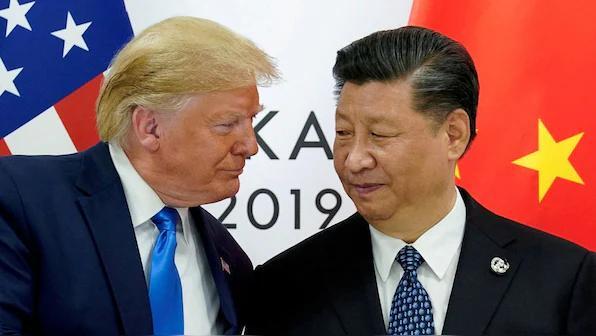
China Refuses to Join Denuclearisation Talks with US & Russia
The world has been on tenterhooks as the United States and Russia continue to engage in talks aimed at reducing nuclear weapons. The latest development in this saga is China’s refusal to join the denuclearisation talks with the two superpowers. In a statement, Chinese Foreign Ministry Spokesperson Guo Jiakun said that the expectation of China’s participation in the trilateral talks was “neither reasonable nor realistic.”
This development comes as no surprise, considering the significant imbalance in nuclear capabilities between the three countries. While the US and Russia have thousands of nuclear warheads, China has a relatively smaller arsenal of around 280 warheads. This disparity in capabilities makes it difficult for China to agree to participate in talks aimed at reducing nuclear weapons.
The refusal of China to participate in the talks is a significant setback for the US and Russia, who had been hoping to involve Beijing in the negotiations. The talks were seen as a crucial step towards reducing the risk of nuclear war and promoting global stability. The US President, Donald Trump, had even called on China to join the talks, citing the importance of involving all major nuclear powers in the discussions.
However, China has rejected the call, citing the significant imbalance in nuclear capabilities between the three countries. Guo Jiakun, the Chinese Foreign Ministry Spokesperson, said that China and the US were not at the same level in terms of nuclear capabilities. This disparity, he argued, made it difficult for China to agree to participate in talks aimed at reducing nuclear weapons.
China’s refusal to participate in the talks is also seen as a reflection of its concerns about the growing US-Russia nuclear arms race. While the US and Russia have been engaged in talks aimed at reducing nuclear weapons, China has been concerned about the growing nuclear arsenals of its rivals. China has been seeking to maintain its nuclear deterrent capabilities, which it sees as essential for its national security.
The refusal of China to participate in the talks has also raised concerns about the effectiveness of the denuclearisation efforts. The US and Russia have been engaged in talks aimed at reducing nuclear weapons since the 1980s, but the progress has been slow and limited. The inclusion of China in the talks could have helped to revive the stalled negotiations and promote greater cooperation on nuclear disarmament.
Despite the setback, the US and Russia are likely to continue their efforts to reduce nuclear weapons. The two countries have been engaged in talks aimed at reducing nuclear weapons since the 1980s, and they are likely to continue to work together to promote global stability and reduce the risk of nuclear war.
In conclusion, China’s refusal to join the denuclearisation talks with the US and Russia is a significant setback for the efforts to reduce nuclear weapons. While the disparity in nuclear capabilities between the three countries is a major obstacle, the inclusion of China in the talks could have helped to promote greater cooperation on nuclear disarmament. Despite the setback, the US and Russia are likely to continue their efforts to reduce nuclear weapons and promote global stability.



